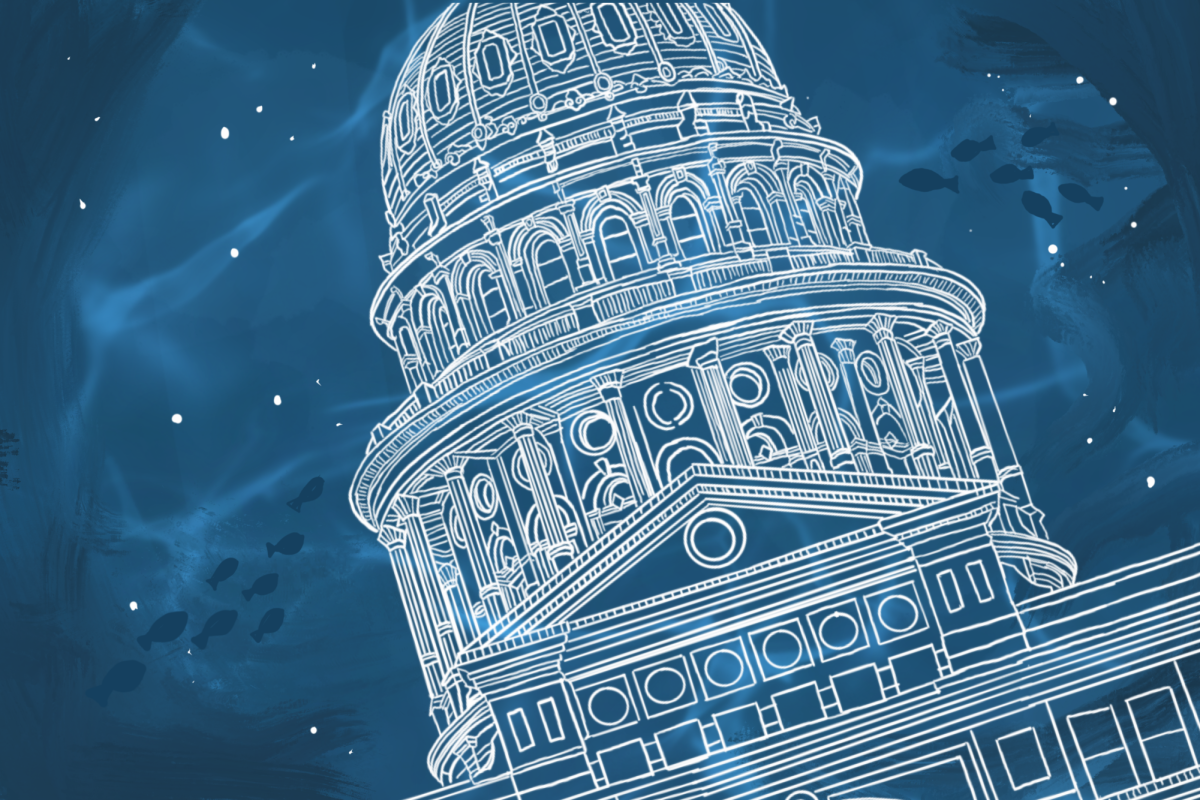University officials say UT could feel repercussions from the automatic tax increases and spending cuts set to kick in as part of the fiscal cliff on Jan. 2, 2013.
If the U.S. Congress does not act, the expiration of five tax measures will cause $500 billion in tax increases and $200 billion in spending cuts. The drastic financial repercussions could put the country on a fiscal cliff by depressing an already sluggish U.S. economy.
Tom Melecki, director of Student Financial Services, said Congress’ inaction could reduce a percentage of funding awarded to the Department of Education, which in turn distributes funds to the programs it administers, including student financial aid programs.
“There’s very little outlining current law about what happens to financial aid programs if we go over the fiscal cliff,” Melecki said. “We’re reading everything we can about what might happen in Washington, but we’re scratching our heads like everyone else. One of my concerns is that changes might take effect immediately.”
Melecki said there will be no immediate cut to Federal Pell Grants, the University’s largest source of student grants, but federal loans and work-study funding could see cuts when students return to campus in January if federal spending is reduced by the fiscal cliff.
In 2011-2012, the University received almost $237 million in federal funding for financial aid programs, $9.6 million of which was Pell Grants distributed to 11,569 students based on financial need. Funding for federal direct subsidized and unsubsidized loans totaled $112.2 million, and $2.1 million was awarded as work-study.
One proposal to avert the fiscal cliff involves increasing the federal subsidized loan interest rate from 3.4 percent to 6.8 percent, Melecki said.
Last year, 1,122 UT students had work-study jobs and earned $3 million. Federal funding for the work-study program, which Melecki said has been suffering reductions every year for the past six years, pays 70 percent of a student’s salary. The University is responsible for the remaining 30 percent.
“My office employs 25 work-study students,” Melecki said. “If there’s a cut back in federal money, I don’t think we can afford to take that up [from 30 percent] to even 35 percent to maintain the same number of jobs if cuts are made.”
Mary Knight, UT associate vice president of financial affairs, said the University has no definitive details about potential cuts but is aware of the possible impacts on student financial aid, research and payroll.
“Payroll tax changes, [including] social security and withholding taxes, could impact [or] reduce faculty and staff take home pay,” Knight said.
In 2010, the payroll tax was temporarily cut from 6.2 percent to 4.2 percent. The tax measure is set to expire at the end of 2012 and could cost the country $115 billion next year.
Federal research funding plays a vital role in research at higher institutions, but funding cuts related to the fiscal cliff could reduce grant money universities receive from major research agencies.
In 2011-2012, the National Science Foundation, the National Institutes of Health and the National Endowment for the Humanities awarded UT $166.4 million in research grants. The three government research agencies may each be subject to a 7.6 percent cut to mandatory spending and an 8.2 percent cut to discretionary spending.
“It is possible that funding for current federal grants could end before the research work is completed,” Knight said.
It is unknown if federal research agencies will implement cuts by eliminating existing grants, not providing new grants, providing less grants or cutting grants by a uniform percentage, Barry Toiv, vice president for public affairs for the Association of American Universities, said.
The Association of American Universities is a group of 62 public and private research universities, including UT, that advocates on issues important to research-intensive universities, including funding.
“What we do know is that considerably less research will take place,” Toiv said. “That is bad for long-term health advances, bad for national security and bad for the nation’s long-term economic growth.”




















